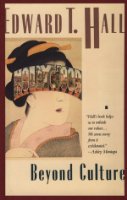 It’s about time I tied up one loose end from my earlier remarks on Professor Maurice Casey’s “frightful”™ and “hopelessly unlearned”™ diatribe against “mythicism” generally and Earl Doherty in particular. In his inaugural essay for The Jesus Process© he wrote:
It’s about time I tied up one loose end from my earlier remarks on Professor Maurice Casey’s “frightful”™ and “hopelessly unlearned”™ diatribe against “mythicism” generally and Earl Doherty in particular. In his inaugural essay for The Jesus Process© he wrote:
. . . [H]opelssly unlearned . . . Doherty’s ‘original’ work on Paul is . . . frightful. . . . He shows no knowledge of the fundamental work of the anthropologist E.T. Hall, who introduced the terms ‘high context culture’ and ‘low context culture’ into scholarship [Footnote here to Beyond Culture]. Paul’s epistles were written in a high context culture, which was homogeneous enough for people not to have to repeat everything all the time, whereas American, European and many other scholars belong to a low context culture, which gives them quite unrealistic expectations of what the authors of the epistles ought to have written.
This is one basic reason why Paul says so little about the life and teaching of Jesus. To some extent, his Gentile Christians had been taught about Jesus already, so he could take such knowledge for granted. He therefore had no reason to mention places such as Nazareth, or the site of the crucifixion, nor to remind his congregations that Jesus was crucified on earth recently.
According to this critique we can conclude that Paul forgot to mention anything about the crucifixion and resurrection of Jesus – or even that Jesus Christ was exalted subsequently to a heavenly role as our Saviour — to his Gentile converts since he clearly does not take such knowledge for granted but repeats it scores of times throughout his epistles.
Shamed into an acute embarrassment for having no knowledge of any “fundamental work”, I immediately purchased a second hand copy of E. T. Hall’s book, Beyond Culture. It arrived as a Harvard University Library discard, very good condition though, complete with Harvard University Library stamps including one warning of a 25 cent fine for every hour it failed to be returned to Harvard’s Social Relations Library after 10 A.M. Continue reading “High-Low context cultures — catching up with the fundamentals”
